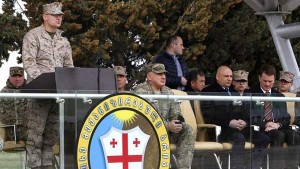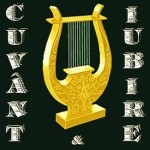Nicholas Dima: New Russian maneuvers
 Speaking at a recent Kremlin meeting, Russian President Vladimir Putin vowed to modernize Russia’s military forces and threatened with grave consequences any aggression against Russia. NATO did not blink. Announcing that a U.S. Marine Corps unit will soon be stationed in Bulgaria, General Norman Cooling declared to the Associated Press that “it is certainly our intent to convince the Russians and Mr. Putin to refrain from aggression and return to the community of peaceful nations.”
Speaking at a recent Kremlin meeting, Russian President Vladimir Putin vowed to modernize Russia’s military forces and threatened with grave consequences any aggression against Russia. NATO did not blink. Announcing that a U.S. Marine Corps unit will soon be stationed in Bulgaria, General Norman Cooling declared to the Associated Press that “it is certainly our intent to convince the Russians and Mr. Putin to refrain from aggression and return to the community of peaceful nations.”
The Russo-Ukrainian conflict is far from over and a mutually acceptable solution is hard to achieve. The Russian annexation of Crimea is a fait accompli: Moscow will not willingly return it to Ukraine and Kyiv will not officially accept the annexation.
What Russia really wants is to control Ukraine and to maintain its geopolitical influence in East Europe. And Moscow has many cards up its sleeves. There are the Russian-dominated regions of eastern Ukraine, the Moscow-controlled Transnistria region of Moldova to the west, and the Odessa region to the south. As a sea port, Odessa is vital to Kyiv, but it is also essential for Russia’s influence in the Black Sea.
From the Baltic to the Black Sea a new fault line is taking shape between the NATO alliance and Russia. Moscow still speaks of peaceful solutions, but underneath is already plotting new moves. One such move aims at Odessa and the Danube River. Reaching the Danube has been Russia’s dream since the tsars. Apparently, Moscow is now reviving the old dream. A brief history is due in this regard.
The territory between the Dnestr and Prut Rivers was part of the medieval Principality of Moldova. Initially, the region adjacent to the Danube and the Black Sea belonged to Walachia, which was led by the Basarab princes. Later, the entire region between the two rivers took the name of Bessarabia.
The Russians reached the Danube in 1812 and annexed the province. However, Moscow’s expansion threatened Western European interests, which triggered the Crimean War. Russia lost the war and was forced to return the area to Romania. Then, Moscow re-annexed it after the 1877 war with Turkey, but lost it again to Romania after the First World War.
Yet, in 1940, the Soviet Union reoccupied the province following the Ribbentrop-Molotov pact. Nonetheless, Romania joined Germany during the Second World War and regained its province, only to lose it again at the end of the war. At that time, Moscow reconfigured the annexed territory and gave to Ukraine this piece of land adjacent to the Danube. The land became part of Odessa region, but remained little developed since then offering few economic opportunities to its inhabitants. The population of the area is made up of Romanians, Russians, Ukrainians, Gagauzi and Bulgarians, and is largely pro-Russian. And now, to further blackmail Ukraine and to bait Romania, Moscow is about to invent a “Bessarabian republic.”
Petro Poroshenko, the pro-Western president of Ukraine, appointed the former president of Georgia Mikhail Saakashvili as the governor of the Odessa region. In his new capacity, Saakashvili sounded an alarm against Moscow’s designs for the region. On June 22, he declared on Ukrainian TV that Russia was inciting the people of the Danube area to proclaim their own popular republic. And he exposed the deep Russian infiltration of the area and the plan to split it from Kyiv. His fear was confirmed by the Ukrainian Security Services (SBU), which arrested numerous members of the Bessarabian Popular Council, who were distributing separatist leaflets. According to Agerpress of Bucharest and Timpul of Chisinau, the USB also confiscated 500 copies of the separatist paper Novorossia. Moscow is continuing to infiltrate Ukraine with the intent of disrupting and destabilizing.
The truth is that the NATO countries neighboring Russia are wary of Moscow’s threats. This is why the Alliance’s leaders have reassured them of unflinching commitment to their defense. Furthermore, NATO decided to station heavy military equipment and troops throughout the entire region. According to Reuters of 24 June, U.S. Defense Secretary Ashton Carter made an announcement to this effect at a press conference held in Estonia. He mentioned military personnel as well as tanks, armored vehicles and self-propelled howitzers, which will be positioned in Estonia, Lithuania, Latvia, Bulgaria, Romania and Poland.
The Western Alliance is also holding military maneuvers envisioning different scenarios. One such war exercise is now taking place in southeast Romania close to the Danube. The exercise involves 1,500 troops from U.S., Romania, five other NATO countries, as well as from Georgia and Moldova. The Independent of June 24 also mentioned the participation of 70 tanks and armored vehicles, 17 airplanes, and four navy ships. Moscow does not like NATO’s reactions, but it is downplaying its own provocative maneuvers.
Speaking at a recent Kremlin meeting, Russian President Vladimir Putin vowed to modernize Russia’s military forces and threatened with grave consequences any aggression against Russia. NATO did not blink. Announcing that a U.S. Marine Corps unit will soon be stationed in Bulgaria, Brig. Gen. Norman Cooling, deputy commander USMC Forces Europe and Africa, declared to AP that “it is certainly our intent to convince the Russians and Mr. Putin to refrain from aggression and return to the community of peaceful nations.”
Putin may be bluffing, but more likely he is testing the margins and NATO must be ready!
———————————————————-
Photo: Brig. Gen. Norman Cooling, deputy commander USMC Forces Europe and Africa/Photo Credit: Sgt. Tatum Vayavananda
Nicholas DIMA
SFPPR News & Analysis
July 7, 2015
___________________________________________________________________
Nicholas Dima, Ph.D, is a former professor and author of numerous books and articles including the autobiographical memoir, Journey to Freedom, a description of the effects of communist dictatorship on a nation, a family and an individual. He currently lectures and is a contributor to http://sfppr.org/2015/07/new-russian-maneuvers/
